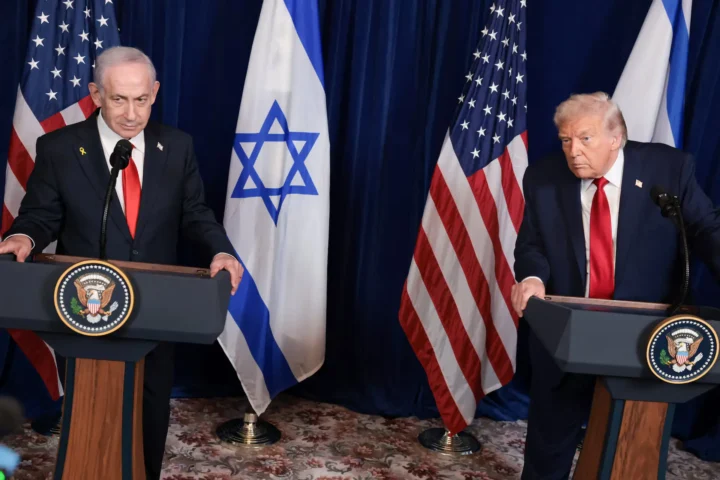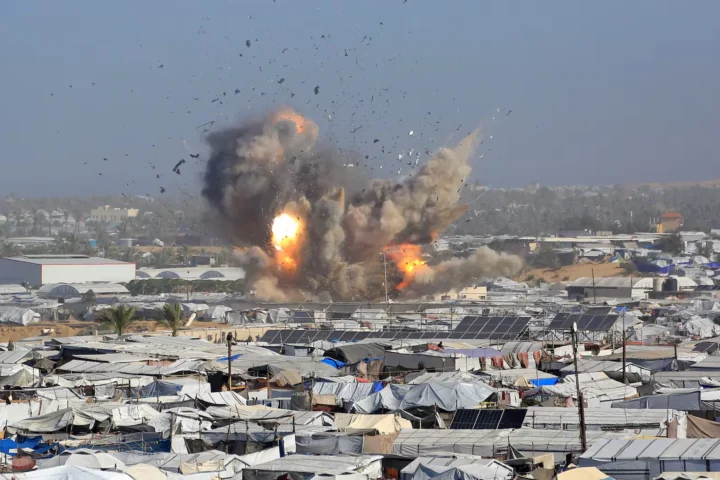For over a year, Europeans have been haunted by a specter looming across the Atlantic: the return of Donald Trump to the White House. Now that this specter has materialized, Europe faces a defining moment. The reelection of Trump is not merely a rerun of 2016. This time, the stakes are higher, the risks sharper, and the margins for error slimmer. It’s not just Trump we must contend with; it’s the full-fledged force of the Maga movement, now deeply entrenched in every branch of American governance and media. Europe must decide: Will it rise to the challenge or be pulled apart by its contradictions?
In theory, Trump’s return could serve as a catalyst for European unity. After all, the 2016 shock jolted the continent into recognizing the need for a cohesive front. Back then, Angela Merkel emerged as the de facto leader of the “free world,” rallying Europe in defense of multilateralism. Today, Europe faces an even more urgent need for solidarity. But where is Europe’s Merkel now?
Trade: The Lone Bright Spot
Trade may be the one arena where Europe is somewhat prepared. Brussels has honed its Trump-proofing mechanisms since the first administration. The European Commission, as the bloc’s single trade authority, has developed strategies to either placate or counter a protectionist US. But the path ahead is fraught. European nations, especially heavyweights like Germany and France, are entangled in complex webs of dependency on US markets and energy supplies. Meanwhile, the EU finds itself in a simmering trade war with China. Managing a two-front economic conflict would test even the most coordinated strategies.
Defence: A Rallying Cry?
Trump’s reelection could also provide the impetus for Europe to take its long-discussed defense ambitions seriously. The notion of a European Defence Fund, backed by common debt, has floated around Brussels for months. Trump 2.0 might just tip the scales, compelling even hesitant players like Germany and the Netherlands to get on board. A constellation of countries, from the Baltic to the Mediterranean, recognizes the urgent need for greater autonomy in defense. Yet, the devil is in the details—and in Europe’s case, the divisions. Will Germany’s fractured coalition survive the pressure? Can France, Italy, and Spain rally the bloc in time?
The Ukrainian Quagmire
But if trade and defense offer slivers of hope, the Ukraine crisis threatens to lay bare Europe’s deepest fault lines. Trump’s disdain for NATO and his transactional approach to foreign policy could spell disaster for Kyiv. A US withdrawal would leave Europe scrambling to fill the void—a task it is ill-prepared for militarily or politically. While nations like Poland and the Baltic states would fight tooth and nail to support Ukraine, others might falter. Germany and Italy, in particular, may succumb to the siren song of “peace” negotiations on Putin’s terms. Viktor Orbán’s Hungary, once an outlier, could find itself with unwelcome company. A fractured Europe is precisely what Moscow dreams of.
The Real Threat: Democracy Itself
Beyond geopolitics, Trump’s return represents an existential threat to liberal democracy on both sides of the Atlantic. His presidency could accelerate the “Orbánisation” of Europe, where democratic backsliding spreads from the peripheries to the core. Italy, already teetering under right-wing leadership, could lead this charge. Trump’s disdain for judicial independence and media freedoms provides a dangerous playbook for European leaders with autocratic tendencies.
At its heart, this is a crisis of values. Elections alone cannot safeguard democracy. They must be buttressed by robust institutions, an independent judiciary, and a free press. But these pillars are increasingly under siege. In this context, Trump’s victory is not just a transatlantic concern; it is a warning shot for Europe’s own democratic integrity.
A Fork in the Road
Europe stands at a crossroads. If its leaders can muster the courage and vision to act decisively, Trump’s return could paradoxically strengthen the continent. A unified, strategically autonomous Europe would be better equipped to defend its interests and values in a volatile world. But this requires a level of foresight and resolve that has been sorely lacking in recent years.
The alternative is bleak. A divided Europe, riven by internal disagreements and external pressures, would be a gift to its adversaries. The EU’s very fabric could fray, with authoritarianism gaining ground and transatlantic ties deteriorating beyond repair.
The clock is ticking. Europe must decide whether Trump’s second term will be its wake-up call—or its obituary.











